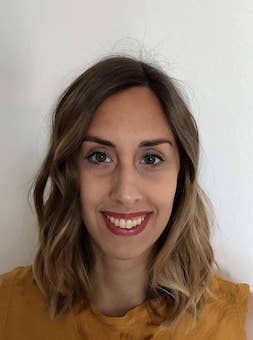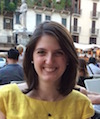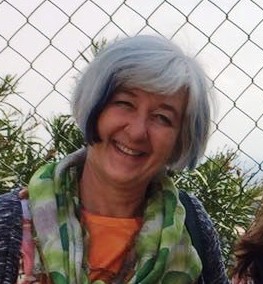Studying at the University of Verona
Here you can find information on the organisational aspects of the Programme, lecture timetables, learning activities and useful contact details for your time at the University, from enrolment to graduation.
Academic calendar
The academic calendar shows the deadlines and scheduled events that are relevant to students, teaching and technical-administrative staff of the University. Public holidays and University closures are also indicated. The academic year normally begins on 1 October each year and ends on 30 September of the following year.
Course calendar
The Academic Calendar sets out the degree programme lecture and exam timetables, as well as the relevant university closure dates..
| Period | From | To |
|---|---|---|
| I semestre (Lingue e letterature straniere) | Sep 28, 2020 | Jan 9, 2021 |
| II semestre (Lingue e letterature straniere) | Feb 15, 2021 | May 29, 2021 |
| Session | From | To |
|---|---|---|
| ESAMI LINGUE - sessione invernale | Jan 11, 2021 | Feb 13, 2021 |
| ESAMI LINGUE - sessione estiva | May 31, 2021 | Jul 24, 2021 |
| ESAMI LINGUE - sessione autunnale | Aug 30, 2021 | Sep 25, 2021 |
| Session | From | To |
|---|---|---|
| LAUREE LINGUE - sessione autunnale (a.a. 2019/20) | Nov 2, 2020 | Nov 7, 2020 |
| LAUREE LINGUE - sessione straordinaria (a.a. 2019/20) | Apr 7, 2021 | Apr 13, 2021 |
| LAUREE LINGUE - sessione estiva (a.a. 2020/21) | Jul 5, 2021 | Jul 10, 2021 |
| Period | From | To |
|---|---|---|
| Festa di Ognissanti | Nov 1, 2020 | Nov 1, 2020 |
| Festa dell'Immacolata | Dec 8, 2020 | Dec 8, 2020 |
| Festa della liberazione | Apr 25, 2021 | Apr 25, 2021 |
| Festa del lavoro | May 1, 2021 | May 1, 2021 |
| Festa del Santo Patrono | May 21, 2021 | May 21, 2021 |
| Festa della Repubblica | Jun 2, 2021 | Jun 2, 2021 |
Exam calendar
Exam dates and rounds are managed by the relevant Foreign Languages and Literatures Teaching and Student Services Unit.
To view all the exam sessions available, please use the Exam dashboard on ESSE3.
If you forgot your login details or have problems logging in, please contact the relevant IT HelpDesk, or check the login details recovery web page.
Academic staff
 giulia.nalesso@univr.it
giulia.nalesso@univr.it
 flavia.palma@univr.it
flavia.palma@univr.it
 sara.paolini@univr.it
sara.paolini@univr.it
 daniela.spina@univr.it
daniela.spina@univr.it
Study Plan
The Study Plan includes all modules, teaching and learning activities that each student will need to undertake during their time at the University.
Please select your Study Plan based on your enrollment year.
1° Year
| Modules | Credits | TAF | SSD |
|---|
1st foreign language2nd foreign language1st foreign literature 1 LM. Forms, genres and critical approaches2nd foreign literature 1 LM. Forms, genres and critical approaches2° Year activated in the A.Y. 2021/2022
| Modules | Credits | TAF | SSD |
|---|
1st foreign literature disciplinary area2nd foreign literature disciplinary area or textual and comparative studies1st or 2nd foreign literature 2 LM. Critical methodologies and textual interpretationA philology to be chosen among the following (philology must be related to one of the chosen languages)History of the 1st or the 2nd foreign language| Modules | Credits | TAF | SSD |
|---|
1st foreign language2nd foreign language1st foreign literature 1 LM. Forms, genres and critical approaches2nd foreign literature 1 LM. Forms, genres and critical approaches| Modules | Credits | TAF | SSD |
|---|
1st foreign literature disciplinary area2nd foreign literature disciplinary area or textual and comparative studies1st or 2nd foreign literature 2 LM. Critical methodologies and textual interpretationA philology to be chosen among the following (philology must be related to one of the chosen languages)History of the 1st or the 2nd foreign language| Modules | Credits | TAF | SSD |
|---|
Legend | Type of training activity (TTA)
TAF (Type of Educational Activity) All courses and activities are classified into different types of educational activities, indicated by a letter.
Type D and Type F activities
| years | Modules | TAF | Teacher |
|---|---|---|---|
| 1° 2° | Laboratorio di introduzione alle metodologie e tecnologie didattiche - Lingua e cultura francese | F |
Maria Francesca Bonadonna
(Coordinator)
|
| 1° 2° | Laboratorio di introduzione alle metodologie e tecnologie didattiche - Lingua e cultura inglese | F |
Paola Vettorel
(Coordinator)
|
| 1° 2° | Laboratorio di introduzione alle metodologie e tecnologie didattiche - Lingua e cultura spagnola | F |
Francesca Dalle Pezze
(Coordinator)
|
| 1° 2° | Laboratorio di introduzione alle metodologie e tecnologie didattiche - Lingua e cultura tedesca | F |
Sibilla Cantarini
(Coordinator)
|
To discover all the teaching activities accredited by the foreign teaching college click here
Varieties of Spanish (2020/2021)
Teaching code
4S006114
Academic staff
Coordinator
Credits
9
Language
Spanish
Scientific Disciplinary Sector (SSD)
L-LIN/07 - LANGUAGE AND TRANSLATION - SPANISH
Period
II semestre (Lingue e letterature straniere) dal Feb 15, 2021 al May 29, 2021.
Learning outcomes
On completion of this course, students:
– will have acquired contents of Spanish linguistics, in particular variational, in a synchronic and diachronic perspective;
– will be able to recognize and apply the treated aspects to the analysis of written texts or oral productions;
– will have acquired the knowledge necessary to implement the teaching of Spanish L2 with special attention to the variational aspects of the language.
Furthermore, C2 language level of competence in Spanish (according to the Common European Framework of Reference for Languages) is also required.
Program
Themes and contents (I Part, 18 hours, Prof. Nalesso)
1. Concepts of linguistic norm and variation.
2. General aspects of the variation in Spanish.
3. Norm and linguistic variety: colloquial, popular and vulgar Spanish.
4. The normative value of the dictionary in relation to diatopic variation and the concept of "panhispanismo".
5. Variation and the teaching of LS Spanish.
Texts and test material (I Part, 18 hours, Prof. Nalesso)
1. Texts and materials made available in the Moodle teaching platform.
2. A selection of readings taken from:
- Briz Gómez, A. (1996): El español coloquial, situación y uso. Madrid: Arco/Libros. (chapters: 1, 2, 3, 4, 5)
- Hernández, H. (2020): "Variación lingüística y norma en la enseñanza del español como lengua extranjera", Revista Internacional de Lenguas Extranjeras, n. 14. ISSN 2014-8100. Available online: https://revistes.urv.cat/index.php/rile/article/view/2969/2919
- Moreno Fernández, F. (2007): Qué español enseñar. Madrid: Arco / Libros. (chapters A, B)
- Moreno Fernández, F. (2019): Variedades de la lengua española. London; New York: Routledge. (chapters 1, 2 3.2, 3.3, 3.5, 4, 6, 14)
Themes and contents (II Part, 18 hours, Prof. Hourani Martín)
1. Spanish in the world: pluricentrism and the Spanish of America.
2. The varieties of the Spanish of America.
3. American varieties and the teaching of LS Spanish.
Texts and test material (II Part, 18 hours, Prof. Hourani Martín)
1. Hernández, H. (2020): “Variación lingüística y norma en la enseñanza del español como lengua extranjera”, Revista Internacional de Lenguas Extranjeras, n. 14. ISSN 2014-8100. Available online: https://revistes.urv.cat/index.php/rile/article/view/2969/2919.
2. Moreno Fernández, F. (2019): Variedades de la lengua española. London; New York: Routledge (sections 3.5, 5.3, 14.3, 14.6).
3. Moreno Fernández, F. (2007): ¿Qué español enseñar? Madrid: Arco/Libros. [capitolo 3 (B)].
4. Texts and materials made available in the Moodle teaching platform.
Teaching modality
The course will be held both in classroom and in telematic mode on the Zoom platform (link in the Moodle teaching platform), with the help of teaching materials , as well as through written texts to be analyzed during the class made available by the professor and in the Moodle teaching platform.
The theoretical content of the course will be presented and critically reflected in lectures and through practical exercises: students will be required to carry out weekly practical exercises for ongoing assessment.
| Author | Title | Publishing house | Year | ISBN | Notes |
|---|---|---|---|---|---|
| Briz, Antonio | El español coloquial: situación y uso | Arco/Libros S. L. | 2017 | 978-84-7635-228-1 | 7ª edizione |
| Moreno Fernández, Francisco | Qué español enseñar | Arco/Libros S. L. | 2007 | 978-84-7635-447-6 | II edizione (I edizione - 2000) |
| Hernández, Humberto | Variación lingüística y norma en la enseñanza del español como lengua extranjera | 2020 | Si tratta di un articolo tratto da Revista Internacional de Lenguas Extranjeras, n. 14, ISSN 2014-8100. Disponibile online: https://revistes.urv.cat/index.php/rile/article/view/2969/2919 | ||
| Moreno Fernández, Francisco | Variedades de la lengua española | Routledge | 2019 | 978-1-138-38595-5 |
Examination Methods
The exam, in the form of a written test, aims to test the breadth and depth of knowledge gained on the topics in the programme, as well as the property of language, terminological precision and the ability to connect in a systemic form the knowledge acquired. The exam will focus on the program carried out during the lessons, the teaching materials and the bibliography of the course. Both questions and answers will be formulated in Spanish.
For attending students there is an ongoing assessment (I part, Prof. Nalesso).
The examination methods are the same for non-attending students.
LINGUISTIC COMPETENCE REQUIRED:
Level 5 (ALTE), C2 (Council of Europe).
Assessment of linguistic competence will be on the grounds of certificates issued by the CLA (the University Linguistic Centre) or by other accredited institutions (see “Students’ Manual”). Linguistic competence is propaedeutic.
PLEASE NOTE AS FOLLOWS:
IN RELATION TO THE CORONAVIRUS EMERGENCY, THE EXAMINATION PROCEDURE DESCRIBED ABOVE MAY BE MODIFIED IN ACCORDANCE WITH THE UNIVERSITY GUIDELINES.
Career prospects
Module/Programme news
News for students
There you will find information, resources and services useful during your time at the University (Student’s exam record, your study plan on ESSE3, Distance Learning courses, university email account, office forms, administrative procedures, etc.). You can log into MyUnivr with your GIA login details: only in this way will you be able to receive notification of all the notices from your teachers and your secretariat via email and soon also via the Univr app.
Student login and resources
Gestione carriere
Attività accreditate D/F
Calendario didattico dettagliato
Competenze linguistiche (prima e seconda lingua)
Language skills
Compilazione del piano didattico
Corso di Lingua portoghese
Double degree
The University of Verona, through a network of agreements with foreign universities, offers international courses that enable students to gain a Double/Joint degree at the time of graduation. Indeed, students enrolled in a Double/Joint degree programme will be able to obtain both the degree of the University of Verona and the degree issued by the Partner University abroad - where they are expected to attend part of the programme -, in the time it normally takes to gain a common Master’s degree. The institutions concerned shall ensure that both degrees are recognised in the two countries.
Places on these programmes are limited, and admissions and any applicable grants are subject to applicants being selected in a specific Call for applications.
The latest Call for applications for Double/Joint Degrees at the University of Verona is available now!
Documents
| Title | Info File |
|---|---|
|
|
pdf, it, 316 KB, 28/09/23 |
|
|
octet-stream, it, 22 KB, 28/09/23 |
|
|
pdf, it, 520 KB, 28/09/23 |
Erasmus+ e altre esperienze all'estero
Linguistic training CLA
Percorso verso l'insegnamento
Una delle possibilità per gli studenti dopo il conseguimento della laurea magistrale è l’insegnamento nella scuola: l’Università degli Studi di Verona è tra gli enti accreditati dal MIUR per l'erogazione di corsi di formazione e aggiornamento e qualificazione delle competenze per insegnanti. Il percorso per diventare insegnante è legato alle seguenti condizioni:
1a CONDIZIONE
Il possesso della laurea magistrale o a ciclo unico, oppure diploma di II livello dell’alta formazione artistica, musicale e coreutica, oppure titolo equipollente o equiparato, coerente con le classi di concorso vigenti alla data di indizione del concorso; il futuro insegnante dovrà, inoltre, soddisfare i requisiti di accesso previsti per la classe di concorso scelta.
Per le classi di concorso:
- A-24 (Lingue e culture straniere negli istituti di istruzione secondaria di II grado) e
- A-25 (Lingua inglese e seconda lingua comunitaria nella scuola secondaria I primo grado)
sono previsti i seguenti requisiti di accesso (vedi l’allegato A al DM 259/2017):
1) 18 CFU nei settori scientifico disciplinari L-LIN/01 e/o L-LIN/02
2) 36 CFU della lingua di specializzazione scelta
3) 24 CFU della letteratura relativa alla lingua di specializzazione scelta.
I requisiti specifici delle classi di concorso A-24 e A-25 possono essere soddisfatti nell’ambito dei piani didattici o negli esami a scelta libera superati all’interno del percorso di studio universitario (Laurea Triennale e Magistrale), oppure attraverso l’iscrizione a corsi singoli.
Il requisito relativo alla lingua di specializzazione (2) è soddisfatto (sulla base degli esami previsti nel piano didattico) nell’ambito del percorso formativo che comprende una laurea triennale dell’area di Lingue e Letterature Straniere, seguita da una laurea magistrale della medesima area (qualsiasi Corso di Laurea triennale e magistrale dell’area di Lingue e Letterature Straniere).
Per verificare i requisiti relativi alla letteratura di specializzazione (3) e agli insegnamenti di linguistica che appartengono ai settori scientifico-disciplinari di L-LIN/01 e L-LIN/02 (1), invece, gli studenti sono invitati a consultare il proprio piano didattico per verificare il numero di CFU previsti nel percorso formativo.
2a CONDIZIONE
Il possesso dei 24 crediti formativi universitari o accademici acquisiti in forma curricolare, aggiuntiva o extra curricolare nelle discipline antropo-psico-pedagogiche e nelle metodologie e tecnologie didattiche, garantendo comunque il possesso di almeno 6 CFU conseguiti in ciascuno di almeno tre dei seguenti quattro ambiti disciplinari:
1) pedagogia;
2) pedagogia speciale e didattica dell’inclusione;
3) psicologia; antropologia;
4) metodologie e tecnologie didattiche.
Percorso formativo 24 CFU
Consente di acquisire uno dei requisiti di partecipazione al concorso nazionale per l’accesso al “percorso annuale di formazione iniziale e prova” su posti comuni e di sostegno, ai sensi del D.Lgs 13 aprile 2017, n. 59 come modificato dalla legge n.145 del 30/12/2018 (c. dal 792 al 796).
I settori scientifico disciplinari, gli obiettivi formativi, le modalità organizzative e gli eventuali costi sono stati stabiliti dal D.M. 10 agosto 2017, n. 616.
Per sapere quali insegnamenti della propria carriera vengano automaticamente riconosciuti si rimanda alla pagina del sito di Ateneo dedicata al percorso formativo 24 CFU.
Si consiglia agli interessati di consultare la pagina https://www.univr.it/it/i-nostri-servizi/futuri-studenti/post-laurea/formazione-degli-insegnanti in costante aggiornamento, in particolare sezione documenti in cui vengono pubblicati formulari, programmi degli insegnamenti ed elenchi di studenti ammessi.
Tra gli insegnamenti automaticamente riconosciuti nell’ambito dei 24 CFU vi sono: Insegnamento delle lingue (L-LIN/02) e Apprendimento delle lingue (L-LIN/02), previsti nel piano didattico del curriculum Linguistico-didattico del CdS di Lingue e letterature straniere (LLS).
Gli studenti immatricolati nel CdS di LLS che hanno scelto i curricula Letterario e Artistico possono comunque inserire tali insegnamenti nel piano di studi come crediti D (a scelta libera).
Gli studenti immatricolati negli altri CdS triennali del Dipartimento di Lingue e letterature straniere (Lingue e culture per il turismo e il commercio internazionale; Lingue e culture per l’editoria [a esaurimento]; Lingue e letterature per l’editoria e i media digitali) posso inserire tali insegnamenti nella propria carriera solo su eventuale autorizzazione preventiva del Presidente del Collegio Didattico (mediante Help desk).
Il soddisfacimento della 1a e 2a condizione è requisito obbligatorio per partecipare ai concorsi di abilitazione o specifici percorsi post lauream previsti dal Ministero.
Graduation
Stage e tirocini
Le attività di stage sono finalizzate a far acquisire allo studente una conoscenza diretta in settori di particolare interesse per l’inserimento nel mondo del lavoro e per l’acquisizione di abilità professionali specifiche.
Le attività di stage sono svolte sotto la diretta responsabilità di un singolo docente presso studi professionali, enti della pubblica amministrazione, aziende accreditate dall’Ateneo veronese.
I crediti maturati in seguito ad attività di stage saranno attribuiti secondo quanto disposto nel dettaglio dal “Regolamento d’Ateneo per il riconoscimento dei crediti maturati negli stage universitari” vigente.
- Tutte le informazioni in merito agli stage per futuri studenti sono disponibili alla pagina Stage e tirocini.
- Tutte le informazioni in merito agli stage per studenti iscritti sono pubblicate in MyUnivr - come fare per - stage e tirocini.
- Tutte le informazioni in merito agli stage per le aziende sono disponili alla pagina Stage e tirocini per azienze.
Ulteriori informazioni al seguente link https://www.univr.it/it/i-nostri-servizi/gestione-carriere-studenti-lingue-e-letterature-straniere/stage-e-tirocini-lingue-e-letterature-straniere

 +39 045802 8409
+39 045802 8409



























